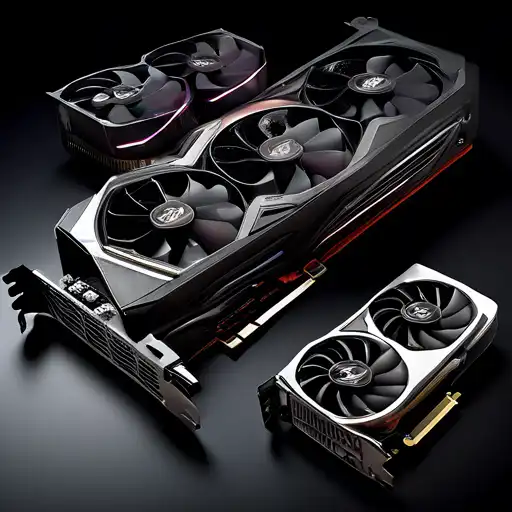Introduction to Choosing a Gaming GPU
Selecting the right GPU (Graphics Processing Unit) is crucial for an optimal gaming experience. Whether you're building a new PC or upgrading your current setup, understanding the key factors that influence GPU performance can help you make an informed decision. This guide will walk you through everything you need to know to choose the perfect GPU for your gaming needs.
Understanding GPU Specifications
Before diving into the vast sea of available GPUs, it's essential to grasp the basic specifications that define their performance. These include:
- Core Clock Speed: Measured in MHz, this indicates how fast the GPU's core operates.
- Memory: The amount of VRAM (Video RAM) is critical for handling high-resolution textures and complex scenes.
- Memory Bandwidth: This determines how quickly the GPU can access its memory, affecting performance at higher resolutions.
- CUDA Cores/Stream Processors: These are the GPU's processing units, with more cores generally leading to better performance.
Matching the GPU to Your Gaming Needs
Not all games demand the same level of GPU power. Here's how to match your GPU choice with your gaming preferences:
- Casual Gaming: For less demanding games or older titles, a mid-range GPU will suffice.
- High-End Gaming: Modern AAA titles at high settings require a high-end GPU with ample VRAM and processing power.
- 4K Gaming: For ultra-high-definition gaming, look for GPUs with high memory bandwidth and large amounts of VRAM.
Considering Your Budget
GPUs come in a wide range of prices, from budget-friendly options to high-end models that can cost as much as a complete PC. It's important to balance performance with what you're willing to spend. Remember, the most expensive GPU isn't always the best choice for your specific needs.
Future-Proofing Your Investment
Technology evolves rapidly, and today's top-tier GPU may not meet tomorrow's gaming demands. Consider future-proofing by choosing a GPU that exceeds your current needs, ensuring it remains capable for years to come. Features like ray tracing and DLSS can also add longevity to your GPU's relevance.
Conclusion
Choosing the right GPU for gaming involves a careful consideration of specifications, gaming needs, budget, and future-proofing. By taking the time to understand these factors, you can select a GPU that offers the best balance of performance and value for your gaming setup. Happy gaming!
